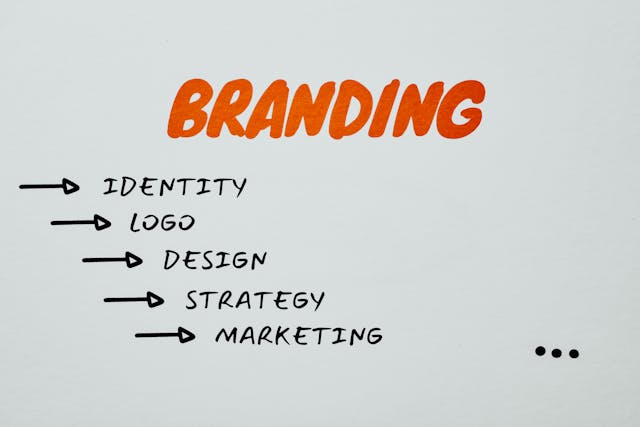At Aqua Gold we know that branding is no longer just about logos and colors; it’s about creating a compelling narrative that resonates with your audience. For entrepreneurs and small to medium businesses, building a solid brand can be the cornerstone of success. As a business coach, my role is to guide you through the process of developing a branding strategy that not only differentiates your business but also drives growth and long-term success.
The Importance of Branding
Your brand is your promise to your customers. It conveys who you are, what you stand for, and what they can expect when engaging with your products or services. Branding goes far beyond visuals; it is the emotional and psychological relationship between your company and your customers. It establishes trust, credibility, and loyalty, making it easier for your audience to choose you over the competition.
For any business, but particularly for startups and small enterprises, establishing a brand strategy early on is crucial. It acts as a roadmap for marketing, sales, and customer engagement. Without a coherent strategy, businesses risk appearing inconsistent, which can confuse or alienate their target audience.
The Core Elements of a Branding Strategy
A successful branding strategy requires a deep understanding of several key elements that form the foundation of a strong brand:
1. Brand Purpose and Values
What is the underlying mission of your business? Why do you exist beyond making a profit? Brand purpose answers these critical questions and serves as the foundation for all branding efforts. Customers today seek out businesses that align with their values. Whether your brand promotes sustainability, innovation, or customer-centric service, clearly defining these core values can help you stand out.
As a business coach, I work with clients to identify and articulate these foundational aspects. Often, these discussions reveal the authentic motivations behind their business, which then become the bedrock of the brand message. Once your purpose and values are well-defined, you can align your marketing, communication, and customer service around them.
2. Target Audience and Market Positioning
Your brand doesn’t have to appeal to everyone—it needs to speak to the right people. Identifying your target audience is a crucial step in building a branding strategy. What are their needs, pain points, and desires? Understanding your ideal customer enables you to position your brand as the solution to their problems.
Market positioning refers to how your business compares with competitors and how customers perceive your brand in relation to others. Is your brand luxurious or budget-friendly? Innovative or traditional? As a coach, I help clients analyze their competitive landscape, allowing them to carve out a unique position that resonates with their audience.
3. Brand Voice and Messaging
Your brand voice is how your business communicates its personality and values to the world. It is shaped by the language, tone, and style you use in all forms of communication—be it on your website, social media, or marketing materials.
The messaging, on the other hand, is the content of what you’re saying. It needs to be clear, compelling, and aligned with the needs and expectations of your audience. Developing consistent and authentic messaging that reflects your brand’s core values ensures that your business is recognizable and relatable.
Through coaching, I emphasize the importance of consistent messaging across all touchpoints. A cohesive voice builds familiarity and trust, while inconsistent messaging can lead to confusion or lack of brand loyalty.
4. Visual Identity
Your brand’s visual identity includes your logo, color palette, typography, and overall design aesthetics. While these elements are not the entirety of a brand, they play a critical role in making a memorable first impression. As humans are highly visual beings, the design of your brand can evoke emotions and influence perceptions within seconds.
A strong visual identity is an extension of your brand’s values and purpose. It should be thoughtfully crafted to communicate who you are at a glance. Business coaching helps clients ensure that their visual identity aligns with their brand strategy, creating a cohesive and impactful brand experience.

Common Challenges in Branding
Branding is not without its challenges. Entrepreneurs often struggle with clarity, consistency, or communicating their values effectively. Additionally, many businesses think that once a brand strategy is in place, the work is done. However, a brand is an evolving entity that must adapt to changing market trends, consumer behaviors, and business growth.
Challenge 1: Lack of Consistency
One of the most common mistakes businesses make is inconsistency. Whether it’s varying messaging across platforms or visual inconsistencies, a lack of coherence can damage brand perception. As a coach, I help businesses set clear guidelines that ensure every touchpoint reflects the brand accurately and consistently.
Challenge 2: Neglecting Emotional Connection
Many business owners focus too heavily on the functional aspects of branding—what they do and how they do it—and neglect the emotional side. Emotional branding creates a deeper connection with your audience, fostering loyalty and advocacy. My coaching approach emphasizes creating experiences that make customers feel valued, which can strengthen emotional ties to your brand.
Challenge 3: Failing to Evolve
A static brand risks becoming irrelevant over time. As markets evolve and consumer preferences shift, businesses need to adapt their branding accordingly. However, rebranding or brand evolution must be done thoughtfully to maintain existing customer trust while attracting new audiences. Through coaching, I guide businesses in making strategic updates that reflect their growth while staying true to their core values.

Implementing Your Branding Strategy
Once the core elements of your brand strategy are defined, it’s time to implement them across all aspects of your business. This includes everything from marketing campaigns and website design to customer service and internal culture. Brand strategy should be an ongoing effort, with regular reviews to ensure alignment with your business goals and customer expectations.
As your business coach, my role is to provide you with the tools, insights, and support necessary to turn your branding vision into reality. Whether you’re looking to refine an existing brand or build a new one from scratch, a well-crafted branding strategy can set the stage for sustainable success.
Let’s Talk About Your Branding Strategy
A strong branding strategy is essential for any business looking to thrive in today’s marketplace. It provides clarity, differentiates you from the competition, and fosters lasting customer relationships. By understanding your brand’s purpose, defining your audience, and maintaining consistency, your business can create a powerful and enduring brand identity.
As a business coach, I work with clients to navigate the complexities of branding, offering personalized guidance that turns abstract ideas into concrete results. Together, we can build a brand that not only stands out but also stands the test of time.

